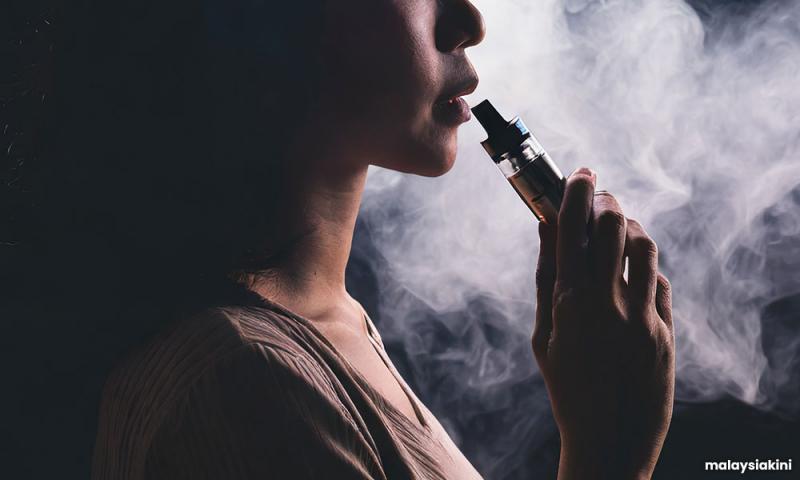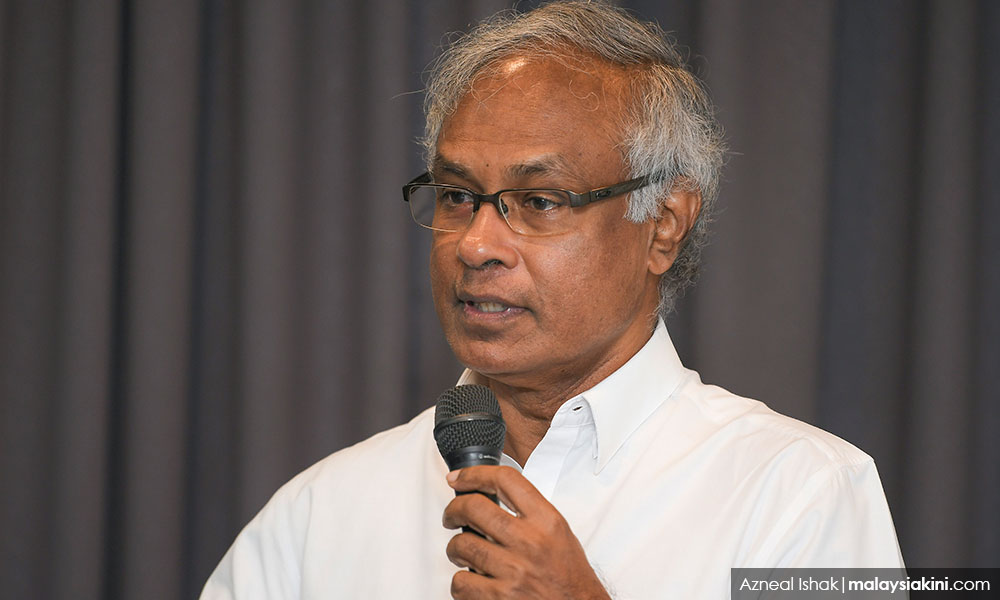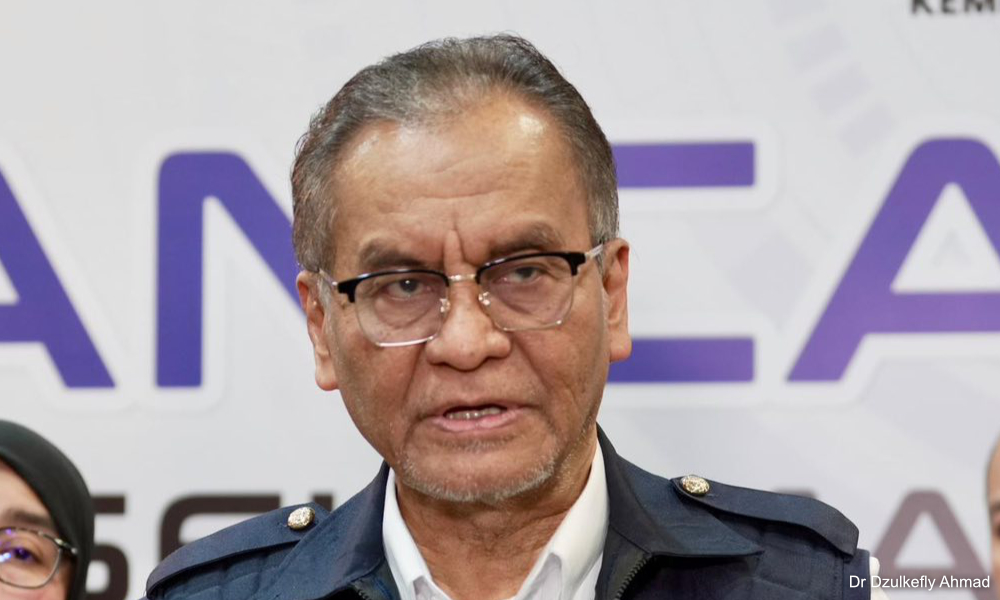


PSM warns of dangerous state overreach in criminalising vape
Published: Aug 25, 2025 2:17 PM
Updated: 6:06 PM
Summary
- PSM criticises the government's plan to ban vaping products as a "dangerous over-reach of state authority."
- PSM chairperson Dr Michael Jeyakumar Devaraj argues that while vaping has health risks, criminalising personal habits crosses the line between government authority and individual rights.
- He warns this could create a "nanny state" and drive the practice underground, comparing it to alcohol prohibition in 1920s America.
PSM has panned the government's plan to ban vaping products, warning that criminalising personal habits represents a dangerous overreach of state authority.
In a statement today, its chairperson Dr Michael Jeyakumar Devaraj acknowledged the health risks associated with vaping, including nicotine addiction and potential long-term lung damage.
However, he argued that outright prohibition crosses "the fine line" between the authority of the government and the rights of individuals.
The former two-time Sungai Siput MP and medical doctor said that people should have the right to engage in an activity even when it is bad for them, as long as that activity does not adversely affect others.
"The state can advise, cajole and persuade him or her, but it should not coerce individuals to live healthily by criminalising that activity.
"So, banning vaping in public spaces such as restaurants, cinemas, trains, etc, is quite fair. Banning the sale of vapes to individuals under 18 years old is also okay.
“But a law that criminalises vaping even in the privacy of an individual’s home or a designated vaping space is gross over-reach of governmental authority," he said.
The PSM leader also questioned the logic of banning vaping while other potentially harmful substances remain legal.
"If vaping can be criminalised, then why not the consumption of alcohol? It also has significant adverse effects on a person's health. And what about sugar consumption? Or being obese?" he asked.
Expanding surveillance
Jeyakumar also expressed particular concern about the expanding surveillance capabilities of modern governments, warning that artificial intelligence, facial recognition technology and social media monitoring can give the state increased power to detect individuals who transgress laws that it has passed.

PSM chairperson Dr Michael Jeyakumar Devaraj
"So, we should be wary of making laws that intrude into our personal spaces. Do we want to create a 'nanny' state that treats us like children and forces us to live healthy lifestyles by threatening punishment?" he said, drawing parallels to George Orwell's dystopian novel “1984”.
He reminded Putrajaya that whenever a bad habit like vaping, alcohol consumption or smoking is criminalised, it usually is not eradicated, but is driven underground.
"So, we should be wary of making laws that intrude into our personal spaces. Do we want to create a 'nanny' state that treats us like children and forces us to live healthy lifestyles by threatening punishment?" he said, drawing parallels to George Orwell's dystopian novel “1984”.
He reminded Putrajaya that whenever a bad habit like vaping, alcohol consumption or smoking is criminalised, it usually is not eradicated, but is driven underground.
kt remarks: like 4-Ekor 😂😂😂
Jeyakumar referenced the American prohibition era from 1920 to 1932 as an example of how bans can backfire, predicting that illegal vaping products would be sold at higher prices and become attractive to rebellious youth as "an expression of anti-establishment sentiment".
Drawing comparisons to drug prohibition policies, Jeyakumar also highlighted the social costs of criminalisation, noting that "hundreds of young men" have been imprisoned for drug offences, leading to prison overcrowding and lives disrupted.
"They lose their jobs and, in some cases, family support. This pushes them into a downward spiral of marginalisation and delinquency. Should we push another group of young people into this debilitating spiral?
"I would therefore urge all those who would like to pass coercive legislation, like banning vaping and the generational endgame (for smoking), to reconsider these initiatives.
“Criminalising unhealthy personal habits should not be the way to go, unless we do not mind steering our society towards an Orwellian '1984'-type situation," he added.
Towards full ban
On July 28, Health Minister Dzulkefly Ahmad told the Dewan Rakyat that the ministry is working towards fully banning the sale of vape and e-cigarette products.

Health Minister Dzulkefly Ahmad
This followed the authorities' findings that the smoking products are being abused for the consumption of illegal drugs.
Dzulkefly said they are evaluating the effectiveness of the Control of Smoking Products for Public Health Act (Act 852) first.
On Aug 21, however, the minister said that the government is anticipating legal challenges as it moves ahead with plans to ban e-cigarette and vape products.
Speaking in the Dewan Rakyat, he said this is because the move to regulate such products has created a “legitimate expectation” from the vape industry, and it needs to be prepared for legal action if the products are suddenly banned.
However, Dzulkefly reiterated that the government aims to fully ban vapes and e-cigarettes in the future, and an expert committee will soon table a report to the cabinet.
“It is no longer if we’ll ban (vape and e-cigarette products), but when we’ll ban. That’s the content of the report to be tabled to the cabinet,” he said.
This followed the authorities' findings that the smoking products are being abused for the consumption of illegal drugs.
Dzulkefly said they are evaluating the effectiveness of the Control of Smoking Products for Public Health Act (Act 852) first.
On Aug 21, however, the minister said that the government is anticipating legal challenges as it moves ahead with plans to ban e-cigarette and vape products.
Speaking in the Dewan Rakyat, he said this is because the move to regulate such products has created a “legitimate expectation” from the vape industry, and it needs to be prepared for legal action if the products are suddenly banned.
However, Dzulkefly reiterated that the government aims to fully ban vapes and e-cigarettes in the future, and an expert committee will soon table a report to the cabinet.
“It is no longer if we’ll ban (vape and e-cigarette products), but when we’ll ban. That’s the content of the report to be tabled to the cabinet,” he said.
***
I've a lot of respect for Dr Michael Jeyakumar (PSM) - he doesn't tok kok in the few times we hear from him.
By the by, I am using this occasion to ask: Is it a criminal act for a Muslim to be caught eating pork and drinking alcohol?
No comments:
Post a Comment